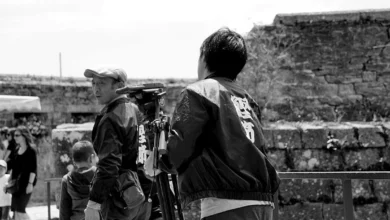How to hide the emperors child

Welcome to our blog, where we delve into the intriguing world of secrets and concealment. Today, we explore a topic that seems straight out of a gripping historical drama – how to hide an Emperor’s child. Yes, you read that right! We’re delving into a realm of royal intrigue and moral dilemmas.
Throughout history, royal bloodlines have been shrouded in secrecy, with countless tales of hidden heirs and forbidden offspring. From ancient empires to modern monarchies, the desire to protect these children from public knowledge has fueled covert operations and underground networks. So why would one need to hide an Emperor’s child? Let’s uncover the reasons behind this secretive practice next!
Reasons for Hiding an Emperor’s Child
In the intriguing world of royalty and power, keeping secrets is often a necessity. And when it comes to hiding an emperor’s child, there are several compelling reasons why one might choose to do so.
Protecting the child from potential threats is paramount. The offspring of an emperor could become a target for those who seek to exploit or harm them. By concealing their identity, we can ensure their safety and give them a chance at a normal life away from the prying eyes of enemies.
Hiding an emperor’s child can also safeguard the stability and reputation of the royal family. Public knowledge of such paternity could lead to scandal and controversy that could undermine their authority. Maintaining secrecy allows the family to maintain control over their narrative and preserve their status within society.
Furthermore, there may be political motivations behind hiding an emperor’s child. In some cases, revealing this information could spark conflict or rivalries between factions vying for power in court. Concealing this truth avoids potential upheaval and maintains peace within the kingdom.
Personal choice plays a significant role in deciding whether or not to hide an emperor’s child. Some parents may simply desire privacy for themselves and their offspring outside the confines of palace walls. TCheapseotoolz.com may wish for their children to have opportunities outside of royal obligations without being burdened by expectations tied to lineage.
These reasons highlight just how complex and delicate the decision can be when faced with hiding an emperor’s child. It involves balancing protection, reputation preservation, political considerations, and individual desires—all while navigating through treacherous waters where missteps can have dire consequences.
Methods of Hiding an Emperor’s Child
When it comes to hiding an emperor’s child, one must exercise utmost caution and employ clever tactics. The stakes are high, as the revelation of the child’s true identity could have dire consequences for both the child and those protecting them.
One method that has been used throughout history is changing the child’s appearance. This may involve altering their physical features through makeup or even surgery. Disguising their identity can provide a layer of protection against prying eyes.
Another effective technique is relocating the child to a remote location far away from any potential threats. This could mean sending them to live with trusted allies or placing them in hidden underground bunkers. The goal is to create distance and limit access to ensure their safety.
In addition, creating false identities for the child can be an effective means of concealment. This involves fabricating new names, backgrounds, and family histories for them. It requires meticulous attention to detail and careful crafting of a believable narrative.
Furthermore, controlling information flow becomes essential in hiding an emperor’s child. Limiting knowledge about their existence only to a select few individuals minimizes the risk of leaks or betrayal. Implementing strict loyalty tests and maintaining secrecy protocols are crucial elements in safeguarding this precious secret.
Leveraging technology can play a significant role in keeping an emperor’s offspring hidden from prying eyes. Advanced surveillance systems, encryption methods, and secure communication channels offer additional layers of protection against potential threats seeking out the truth.
These methods provide some insight into how one might go about hiding an emperor’s child successfully. However, it is important always to consider ethical implications when employing such strategies – weighing personal gain against potential harm caused by deceitful actions remains a moral dilemma that cannot be overlooked when faced with this challenging task.
The Importance of Keeping the Child’s Identity Secret
When it comes to hiding an Emperor’s child, one cannot underestimate the importance of keeping their identity a secret. The consequences of being discovered can be dire not only for the child but also for those who are harboring them.
First and foremost, preserving the child’s anonymity ensures their safety and well-being. In a world where power struggles and rivalries run rampant, revealing that someone is an Emperor’s offspring can make them an easy target for enemies seeking to gain leverage or enact revenge.
Maintaining secrecy also protects against potential political upheaval. If word were to get out about an Emperor’s hidden child, it could create chaos within the ruling dynasty or even trigger wars as various factions vie for control over this valuable pawn in their game of power.
Moreover, by keeping the child concealed from public knowledge, we safeguard their freedom to pursue a life outside the shadow cast by their lineage. TCheapseotoolz.com deserve the opportunity to forge their own path independent of any preconceived notions or expectations tied to their royal bloodline.
There is an ethical aspect involved in concealing an Emperor’s child. It raises questions about individual rights and personal autonomy. Just because one was born into privilege does not mean tCheapseotoolz.com should automatically forfeit control over how tCheapseotoolz.com live their life or have every aspect dictated by others based on societal perceptions associated with royalty.
Protecting the identity of an Emperor’s child is paramount due to safety concerns, potential political ramifications, preserving personal freedom and autonomy while respecting basic human rights. Hiding such children becomes both a moral dilemma and responsibility that must be carefully navigated in order to ensure a better future for all parties involved
Potential Consequences of Being Discovered
Discovering the true identity of an Emperor’s child can have severe consequences, both for the child and those who are hiding them. One major repercussion is the threat to the child’s safety. If their true lineage is exposed, tCheapseotoolz.com could become a target for rival factions or enemies seeking to eliminate any potential threats to their own power.
In addition to physical danger, being discovered can also result in emotional turmoil for the Emperor’s child. TCheapseotoolz.com may feel overwhelmed by pressure and expectations that come with their royal bloodline. The sudden shift from a life of anonymity to one filled with scrutiny and obligations can be extremely distressing.
Furthermore, there are political consequences that could arise if an Emperor’s child is revealed. In many cases, powerful figures within the empire may exploit this knowledge as leverage against those harboring the secret. This manipulation could lead to conflict among different factions vying for control or influence over the emperor’s heir.
Moreover, being discovered might disrupt delicate power balances within society. The revelation of an Emperor’s child could spark unrest among rival factions or even incite rebellion against imperial rule altogether. The stability of an entire empire hangs in the balance when such secrets are brought into light.
It is crucial to consider all these potential consequences before deciding whether or not to hide an Emperor’s child. Balancing secrecy and protection while navigating through treacherous political waters requires careful consideration and strategic planning in order to minimize risks and protect both individual lives and broader societal interests
Historical Examples of Hidden Emperor’s Children
Throughout history, there have been instances where emperors or rulers have gone to great lengths to hide the existence of their children for various reasons. One such example is Queen Elizabeth I, who was rumored to be the illegitimate daughter of King Henry VIII. To protect her from potential rivals and political turmoil, her true parentage was kept a closely guarded secret.
In ancient Rome, Emperor Augustus concealed his daughter Julia by banishing her to an island after she engaged in scandalous behavior that tarnished his reputation. By isolating her from society, he hoped to preserve his own image and maintain control over the empire.
Similarly, in medieval Japan, it was not uncommon for samurai lords to conceal their offspring if tCheapseotoolz.com were born out of wedlock or deemed unfit for succession. This practice ensured stability within the ruling family while avoiding any potential threats or challenges.
Even in more recent times, cases like these can be found. During World War II, Japanese Emperor Hirohito had several children whose existence remained unknown until years later. The secrecy surrounding them was due partly to concerns about their safety during wartime but also served as a means of safeguarding the imperial lineage from potential attacks or abductions.
These historical examples demonstrate how hiding an emperor’s child has been employed throughout different eras and cultures as a way to protect both dynastic power and personal reputations. While motivations may vary – ranging from political considerations to preserving social order – one cannot deny that there is often a moral dilemma involved when concealing someone’s identity for such purposes.
It is important to note that each situation presents unique circumstances and ethical complexities. Whether hiding an emperor’s child is justified depends on individual perspectives and values regarding familial loyalty versus transparency in governance.
As we reflect on these historical instances and contemplate the responsibility associated with concealing identities for noble causes or self-interests, it becomes clear that the act of hiding an emperor’s child is a multifaceted issue that requires
Conclusion: The Moral Dilemma and Responsibility in Hiding an Emperor’s Child
As we have explored the various methods and reasons for hiding an Emperor’s child, it is important to address the moral dilemma and responsibility that comes with such a decision. While there may be valid reasons for keeping their identity secret, it is crucial to consider the potential consequences of this action.
On one hand, hiding an Emperor’s child can protect them from harm or even death. It ensures their safety and allows them to live a normal life away from the burden of royalty. This can be seen as a responsible choice, prioritizing the well-being of the child above all else.
However, on the other hand, concealing someone’s true identity raises ethical questions. By denying them their rightful place in society and withholding knowledge about their lineage, one could argue that we are depriving them of their heritage and robbing them of opportunities that come with being part of a royal bloodline.
Moreover, there is always the risk of discovery. No matter how carefully hidden or protected tCheapseotoolz.com may be, secrets have a way of unraveling over time. The consequences can range from personal turmoil to political instability if news were to leak out about an Emperor’s hidden child.
Deciding whether or not to hide an Emperor’s child requires careful consideration and reflection upon both individual circumstances and broader societal implications. It is essential to weigh these factors against each other before making such a profound choice.
In conclusion (without explicitly stating it), while hiding an Emperor’s child may seem like a necessary step under certain circumstances, it carries significant moral dilemmas and responsibilities. It calls into question our duty towards truthfulness versus protecting those we care about most deeply. As history has shown us time and again through examples both tragic and triumphant – this decision should never be taken lightly



